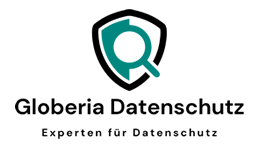Informationen zur DSGVO 2025 - Globeria Datenschutz
Was müssen Sie über Cookies und Tracking rechtlich wissen?
Cookies und Tracking-Technologien gehören heute zu jedem modernen Internetauftritt. Sie helfen Unternehmen, Nutzerverhalten zu analysieren,…
Was sind die neuen Änderungen der Datenschutz-Grundverordnung im Jahr 2025?
Die Datenschutz-Grundverordnung (DSGVO) ist seit ihrem Inkrafttreten im Mai 2018 ein zentraler Pfeiler des Datenschutzes…
KI und Datenschutz: Wie die EU-KI-Verordnung Ihr Unternehmen betrifft
Künstliche Intelligenz (KI) revolutioniert die Geschäftswelt, doch mit den neuen Möglichkeiten kommen auch neue Herausforderungen…
DSGVO 2025: Die neuesten Anforderungen für Unternehmen meistern
Die Datenschutz-Grundverordnung (DSGVO) ist auch im Jahr 2025 ein unverzichtbares Thema für Unternehmen in der…
Wie KI-gestützte Tools die DSGVO-Compliance im Jahr 2025 prägen
Künstliche Intelligenz (KI) verändert viele Geschäftsprozesse in rasanter Geschwindigkeit, darunter auch die Einhaltung der Datenschutz-Grundverordnung…
Datenschutz im Jahr 2025: Wichtige DSGVO-Updates, die jedes deutsche Unternehmen beachten muss
m Jahr 2024 wird das Thema Datenschutz weiterhin eine zentrale Rolle für Unternehmen in Deutschland…
DSGVO für kleine Unternehmen im Jahr 2025: Einfache Strategien für die Compliance
Seit ihrer Einführung im Jahr 2018 hat die Datenschutz-Grundverordnung (DSGVO) die Art und Weise, wie…
Datenschutzverstöße: Wie Sie Bußgelder vermeiden und Ihr Unternehmen schützen
Die DSGVO (Datenschutz-Grundverordnung) ist das zentrale Gesetz, das den Umgang mit personenbezogenen Daten in der…
Was sollten Sie tun, wenn Sie ein Bußgeldschreiben von der Datenschutzbehörde (DPA) erhalten?
Wenn Sie als Unternehmen ein Bußgeldschreiben von der Datenschutzbehörde (DPA) erhalten, ist es wichtig, umgehend…
Schritt-für-Schritt-Anleitung: Wie Sie Ihre Website DSGVO-konform machen
Die Datenschutz-Grundverordnung (DSGVO) der Europäischen Union stellt sicher, dass die persönlichen Daten der Bürger geschützt…
DSGVO-Checkliste für Shopify-Nutzer: So erfüllen Sie die europäischen Datenschutzvorgaben
Shopify ist eine beliebte E-Commerce-Plattform, die es Unternehmen weltweit ermöglicht, Online-Shops einfach zu erstellen und…
DSGVO für E-Commerce-Onlineshops: Wichtige Leitlinien
Die Datenschutz-Grundverordnung (DSGVO) hat das Datenschutzrecht in der Europäischen Union revolutioniert und stellt E-Commerce-Unternehmen vor…












